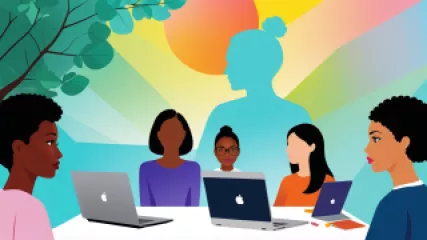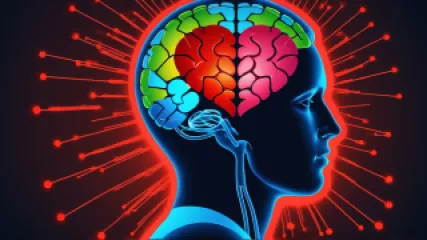Ever tried to untangle a necklace only to find out it's actually a pair of headphones? That's sometimes what dealing with life's issues feels like. I'm Athena Murphy, and I've been helping people sort through their metaphorical knotted headphones for nearly two decades. While we're at it, we might as well have a good laugh, because, let's face it, sometimes life is just plain absurd.
My approach to therapy is a little like jazz - it's structured yet improvisational. I specialize in trauma, the psychology of pain, and resilience. Think of me as your personal emotional detective; I'm here to help you uncover the clues to your own wellbeing. And yes, I do believe a spoonful of humor helps the medicine go down. In our sessions, don't be surprised if laughter is used as a tool to shed light on the darkest corners. After all, it's hard to be scared of the monsters under the bed when you're chuckling at them.
With 18 years in the game, I've seen it all. Broken hearts, shattered dreams, and spirits that have been through the wringer. But here's the kicker – I've also seen the remarkable capacity for human resilience. That incredible ability we all have to bounce back, often stronger than before. My role? I'm the one holding the flashlight, helping you navigate through the twists and turns of your psyche, all while ensuring we can still crack a smile about the absurdity of finding oneself in a psychological escape room.
Why do I incorporate humor into my practice? Simple. It opens doors. It has this unique way of breaking down walls and making the uncomfortable a tad more comfortable. Plus, it's a fantastic reminder that despite the heaviness we may carry, there's still lightness to be found. And before you worry – no, I won't be throwing pie-in-your-face kind of gags. Think of it more as strategically placed wit to lighten the mood and connect on a human level.
To me, therapy is not just about exploring the depths of your psyche; it's also about rediscovering the joy and laughter that life has to offer, even amidst chaos. So, if you're ready to tackle those deep-seated issues but wouldn't mind a few laughs along the way, I might just be the therapist for you. Together, we'll navigate the complexities of your inner world, all while remembering not to take ourselves too seriously. Who said healing couldn't have a sense of humor?
If you're looking for a blend of depth, insight, and a dash of humor, let's chat. I'm here to help you untangle those headphones—I mean, challenges—with a smile.















